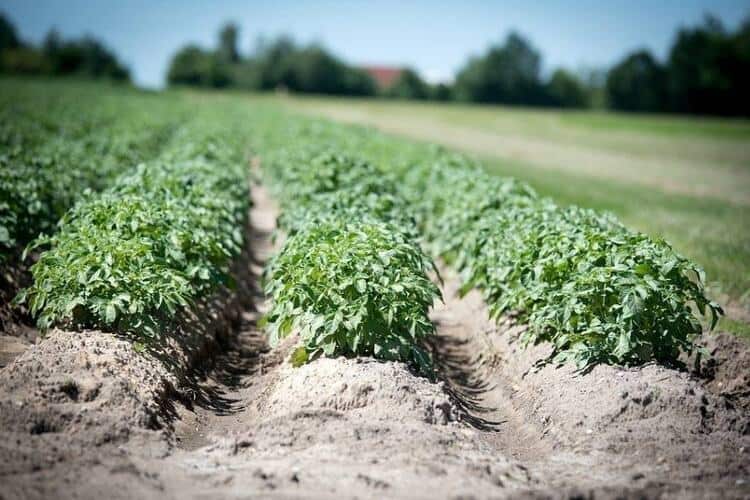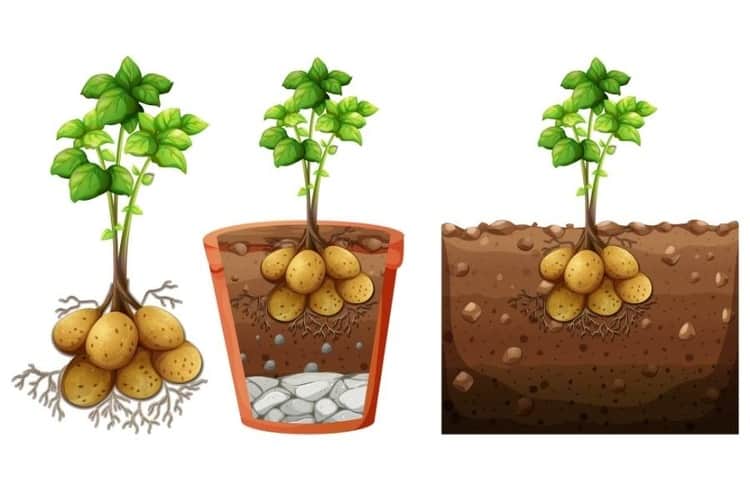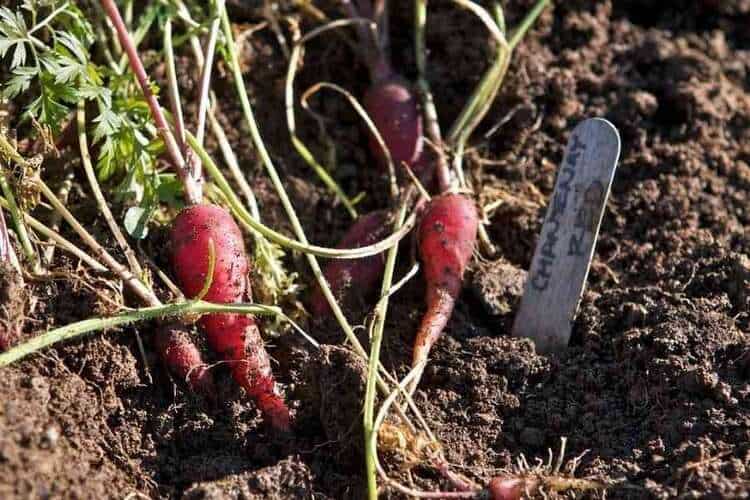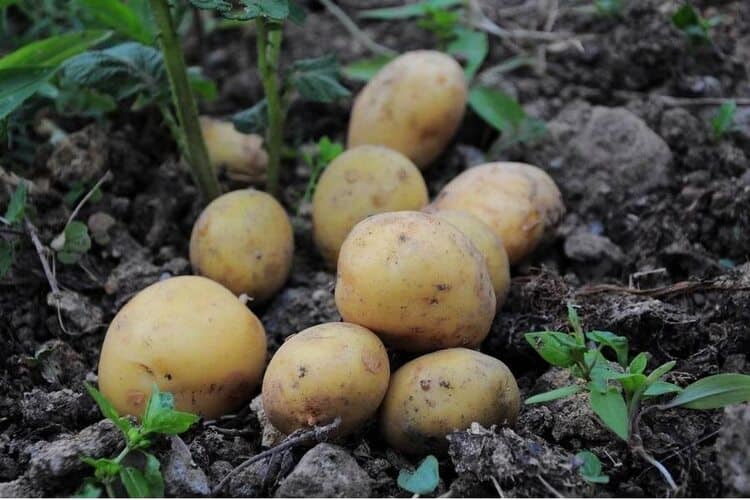Can Lawn Fertilizer Be Used On Vegetables? Experts Revealed
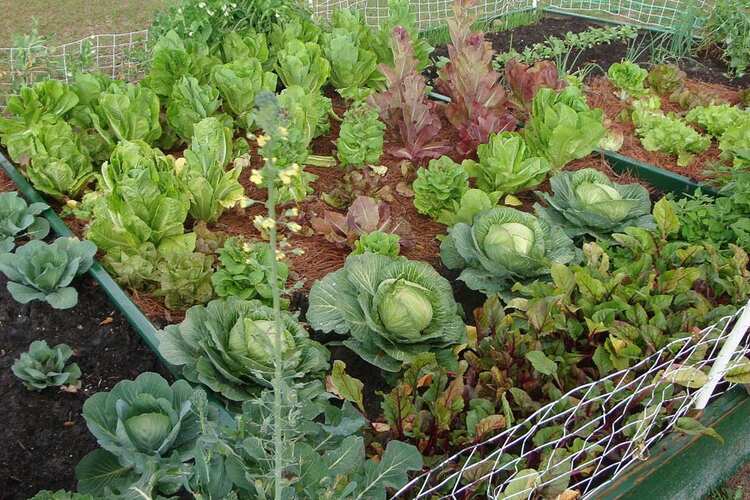
Vegetables need fertilizer to flourish. However, it’s essential to choose the right food for your garden. So, can lawn fertilizer be used on vegetables?
The short answer is no. The high nitrogen content in lawn fertilizer can harm vegetables. It may include pesticides and herbicides that can destroy your plants or hinder pollination. Today, Swipe Garden will explain the causes and consequences in detail.
Let’s read on to learn more details!
Can You Use Lawn Fertilizer On Fruit Trees?
No, lawns require nitrogen for leafy growth, but vegetable or fruit trees do not necessarily have a lot of it. The nutrient helps bring out the vivid grass. Unfortunately, you don’t grow fruit trees just to harvest leaves. Some lawn fertilizers have a high nitrogen content, but they can be balanced with other nutrients. If you use an all-purpose nutrient for lawns, you’re giving the trees a double punch in terms of fruit yield.
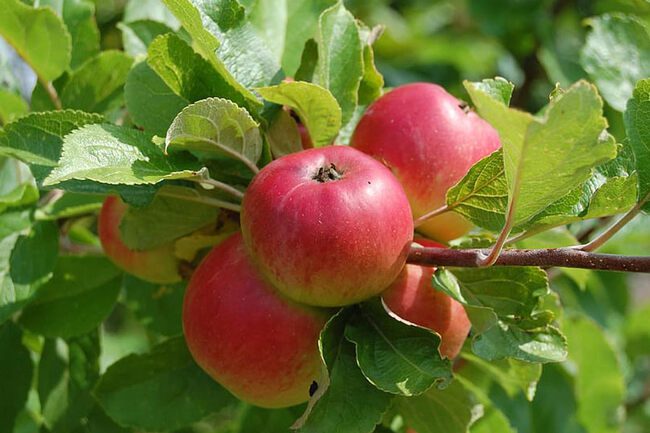
Is Lawn Fertilizer The Same As Plant Fertilizer?
The two kinds of fertilizer are different in their nutrient concentration, application method, and application time.
Nutrient content
Plants require a wide range of nutrients to grow. Most fertilizers contain the “main players” of nitrogen, phosphorus, and potassium (often known as N-P-K). The compositions of fertilizers for lawns and gardens are vastly different. Moreover, other products can have dramatically different nutritional profiles.
You’ll notice figures like “5-10-15” on fertilizer packages. The number “5” indicates that the fertilizer comprises 5% nitrogen by weight. Similarly, the numbers 10 and 15 stand for the weight percentage of phosphorus and potassium, respectively.
These nutrients serve different purposes:
- Nitrogen encourages the development of plants’ above-ground leafy portions. So, this nutrient is perfect for leafy growth.
- Phosphorus promotes root growth. For a carpet to be green and robust over the summer, deep-root development is essential.
- Potassium is for plant health. It provides an extra boost to plants’ toughness and pest resistance.
The N-P-K ratio differs a lot in certain kinds of fertilizers.
- For lawns
The most common N-P-K ratios for lawns are 6-4-0 and 29-0-5. As you can see, the profile of nitrogen is really high since it focuses on leafy growth. Of course, you need to balance the nutritional content by adding more potassium or phosphorus. However, nitrogen is the most critical food.
- For gardens
There are many different N-P-K ratios available for gardens. Some of the most commonly used options are 2-7-4, 3-4-4, 10-10-10, and 24-8-6. Gardeners figure out what their plants need, then come up with the best diet solution.
Application method
For gardens, granular fertilizer is the most common form of fertilizer. Gardeners often place the granules on the topsoil. Then, they water the fertilizer to allow it to penetrate the root system. On the other hand, most lawn fertilizers are liquid. Gardeners spray the solutions on the grass and water them after applying liquid fertilizer.
Application time
Early October is the ideal time to feed the grass. On the other hand, gardens demand fertilization in the spring, when most plant development occurs. Fertilizing lawns in the spring encourages above-ground development rather than root growth, which can harm the grass. Improper fertilizing also leads to the growth of shallow roots, which do not promote drought-resistant grass.
Is Lawn Fertilizer Safe For Vegetable Gardens?
You shouldn’t apply lawn fertilizer to vegetables. Both lawns and vegetables focus on leafy growth. However, it doesn’t mean that they require the same level and content of nutrients. Fertilizers for grass have too much nitrogen. Many of them even contain compounds for weed management that can harm or kill your vegetables.
Are Fertilizers Bad For Vegetables?
If you want the greatest harvests and quality products, you should fertilize your vegetables. There are various nutrient options available, and a soil test may assist in determining which nutrients are necessary.
Why are fertilizers good for vegetables?
Both macronutrients and micronutrients are essential for vegetables. Your garden needs large amounts of macronutrients, while micronutrients are only needed in small quantities or as trace elements in the soil. Necessary macronutrients are calcium, magnesium, and sulfur, in addition to NPK.
Other micronutrients are also essential for vegetable plants for proper development and crop yields. During different periods of growth, plants demand different quantities of essential nutrients. To guarantee that the soil supplies crops with the nutrients they need, a regular, balanced diet is necessary to avoid deficiencies.
What to avoid when fertilizing?
Some people think fertilization is not necessary for vegetable plants. Some may even argue that fertilizers can ruin their crops. Plants require nutrients to thrive. Fertilizers are harmful to your garden in these cases:
- Over-fertilizing
Your crops require a lot of minerals to thrive and be robust and healthy. You should only apply fertilizer if you’re sure your crop has a nutritional shortage that needs to be solved. Increasing the number of nutrients in the soil does not ensure that your plants can grow faster. Only plants that are short on nutrients can absorb what they need. Some nutrients take a long time to make their way into the soil. As a result, fertilizing too much with some minerals might lead to their depletion in others.
- Synthetic fertilizers
Not all fertilizers are the same. It would be best to avoid synthetic products since they contain compounds that are damaging to plants. Create your own compost instead of using chemical fertilizers to promote a stronger and more balanced garden. Compost and other organic products contribute nutrients to the soil and help build it up instead of draining it. Adding a DIY compost bin to your garden is so much more enjoyable.
What Is A Good Fertilizer For Gardens?
A good diet suits your crop’s nutritional needs. A balanced fertilizer meets your crop’s nutritional needs. You can try the 12-24-12 or 10-20-10 ratio because these compounds are typically simple to get by. Some soils already contain sufficient potassium for plant development and do not require additional potassium. A small amount of excess potassium would not harm plants. As a result, it is advisable to employ complete fertilizers.
Why Is A Natural Product A Good Choice?
Organic fertilizers may have lower N-P-K ratios, but they provide nutrients over a longer period of time. It’s best to wait for organic fertilizers to break down and release nutrients before plants can absorb them.
Here are some of the best options for your vegetable plants:
- Bone meal
Bone meal includes calcium, which is an essential mineral for plants. When the pH level in the soil is between 6.0 and 7.0, the most phosphorus is accessible to your plants.
- Alfalfa meal
The microbiological content of alfalfa meals is high. The various trace minerals included in alfalfa meal encourage crop production as well as soil bioactivity, even if it takes a few months to really work.
- Cottonseed meal
Cottonseed is a great nitrogen source. It is also an extra source of potassium and phosphorus.
- Blood meal
The usual N-P-K ratio of blood-feeding is 12-0-0, making it extremely rich in nitrogen. Gardeners may easily ruin the compound because of the high ammonia concentration. Too much blood meal can cause plant and root burn.
- Sulfate of potash
The sulfate of potash is a soluble salt containing both sulfur and potassium. It includes a lower salt value than many other potassium treatments, reducing the risk of salt buildup and root or floral scorch.
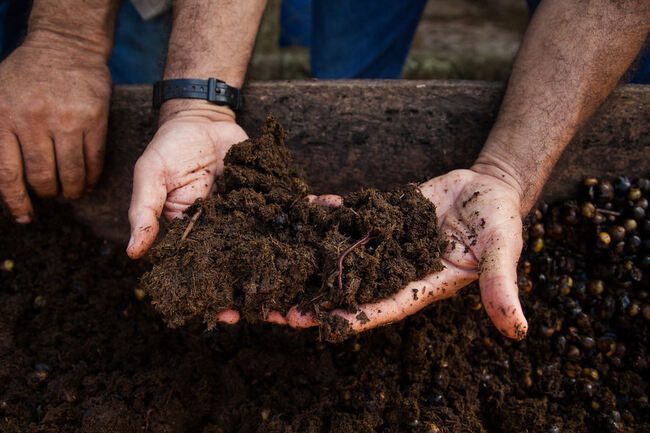
How Soon Can You Eat Vegetables After Fertilizing?
Often, you need to wait two to four weeks after fertilizing to eat your vegetable plants. It usually only takes about two weeks in most circumstances. Synthetic fertilizers release nutrients quickly into your crops, while organic fertilizers take longer to break down and release nutrients. Then, owing to rain drainage and irrigation, they generally leak into the soil.
In comparison to organic fertilizers, this brief time is a significant difference. It would be best to wait for the nutrient to degrade before the plant could absorb it with organic materials. This process might take up to six weeks. When a plant begins to produce vegetables, many growers immediately stop fertilizing it. However, you can continue to use it to guarantee a plentiful harvest.
Conclusion
Vegetables need specific nutritional content to thrive. As a result, gardeners have to determine what their crop demands. It’s important to know the nutrient needs of your garden plants before applying fertilizer. Using natural fertilizers can be beneficial for your garden plants. The additional nutrients supplied can help your garden grow at its best. Hopefully, you will find this article helpful. Thank you for following this post!
Related posts:


